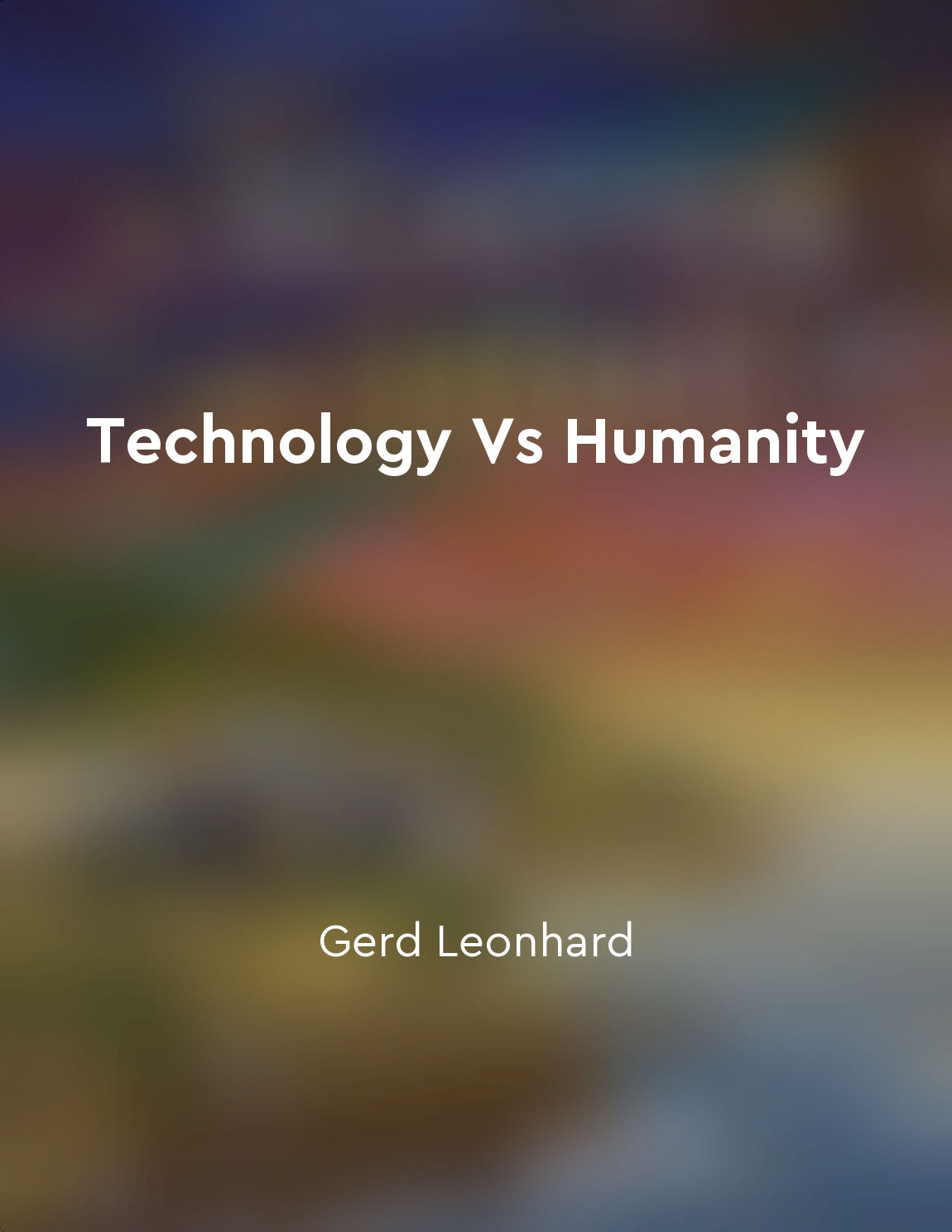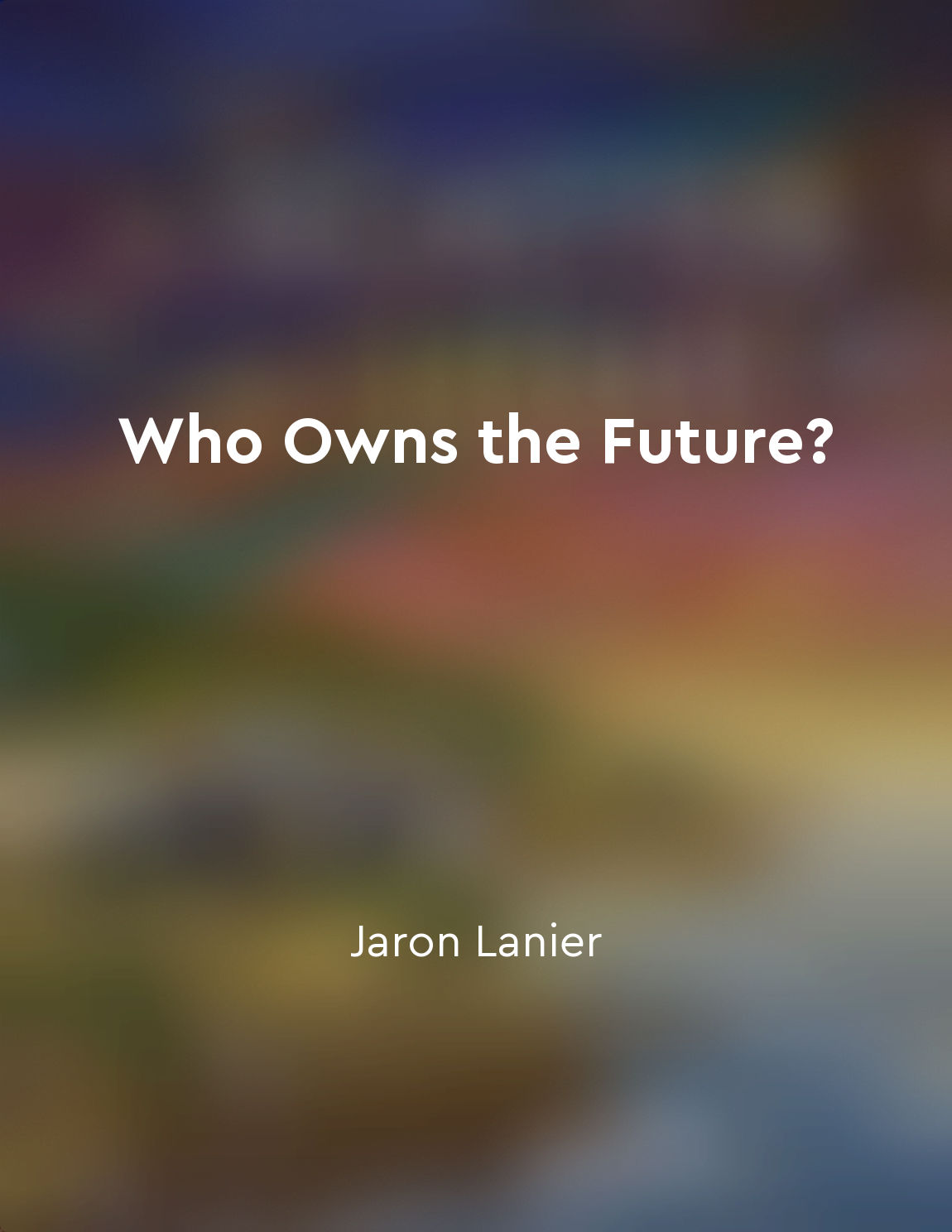Data should not be centralized in the hands of a few powerful corporations from "summary" of Who Owns the Future? by Jaron Lanier
A central idea in 'Who Owns the Future?' is the danger of allowing data to be controlled by a small number of powerful corporations. When data is centralized in the hands of a few entities, it creates a situation where those entities have immense power and influence over society. This concentration of data leads to a concentration of wealth and power, as those who control the data can manipulate markets and shape the direction of the economy. This centralization of data has far-reaching consequences for individuals as well. When data is concentrated in the hands of a few corporations, individuals lose control over their own information. Their data is used to generate profits for these companies, without any benefit accruing to the individuals themselves. This results in a situation where individuals are effectively working for free, generating value for others without receiving any compensation in return. Moreover, the centralization of data in the hands of a few corporations stifles innovation and competition. When a small number of companies control vast amounts of data, they have a competitive advantage that makes it difficult for smaller companies to enter the market and compete on a level playing field. This leads to a situation where innovation is stifled, as new ideas and technologies are unable to gain a foothold in the market. Ultimately, the centralization of data in the hands of a few powerful corporations is a threat to democracy itself. When a small number of entities control vast amounts of data, they have the ability to shape public opinion and influence political outcomes. This concentration of power undermines the principles of democracy, as the voices of individuals are drowned out by the influence of these powerful corporations. In order to prevent these negative consequences, it is essential to decentralize data and ensure that individuals have control over their own information. By dispersing data more widely and giving individuals ownership of their own data, we can create a more equitable and democratic society where power is not concentrated in the hands of a few powerful corporations.Similar Posts
Gender and politics
Gender and politics are intertwined in the fabric of society, influencing power dynamics and decision-making processes. Histori...

Genetic engineering challenges ethical boundaries
Genetic engineering is a powerful tool that has the potential to revolutionize humanity in unimaginable ways. With this technol...

The power of technology can be overwhelming
Within the realm of technology, there lies a vast and formidable power that has the capacity to both awe and terrify us. This p...

Human beings must not be reduced to data points
Reducing human beings to mere data points would be a grave mistake. Our uniqueness, complexity, and richness cannot be captured...

A more sustainable economic model is needed to ensure a fair distribution of wealth
In order to achieve a fair distribution of wealth, we must shift towards a more sustainable economic model. The current system ...
The existential questions raised by the merging of humanity and technology
The merging of humanity and technology raises profound existential questions that challenge our understanding of what it means ...
